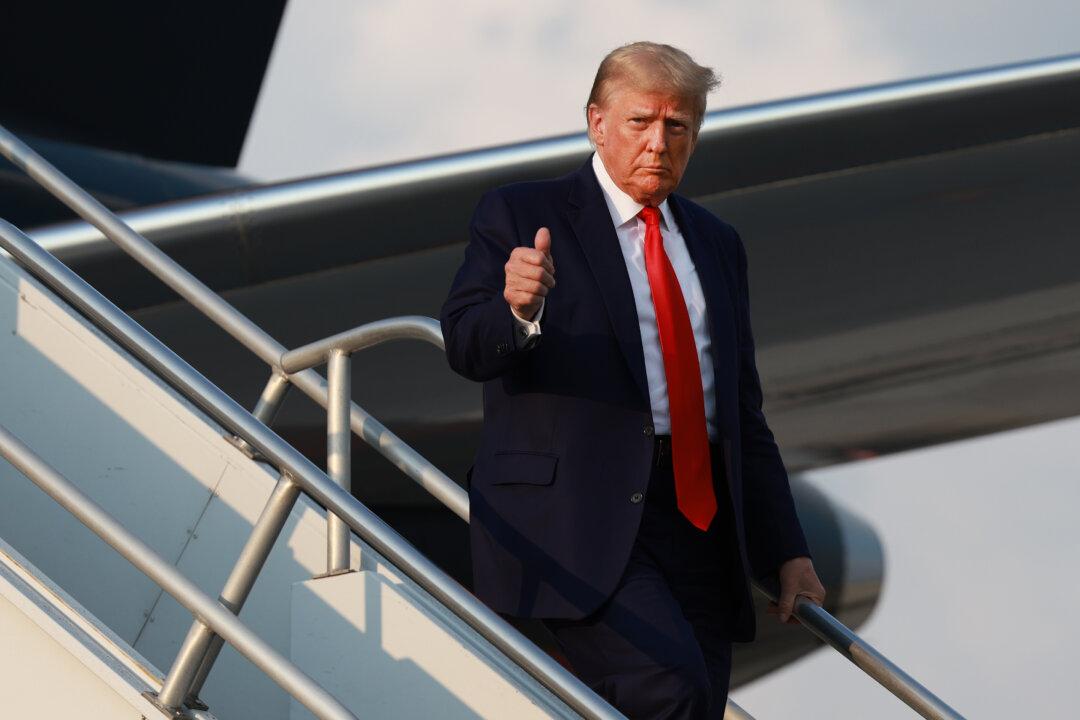Former President Donald Trump may seek to move the Georgia election interference case against him to federal court and out of Fulton County, his lawyer said in a filing.
“President Trump hereby notifies the Court that he may seek removal of his prosecution to federal court under 28 U.S.C. [Sections] 1442 & 1445,” Steven Sadow, lead counsel for President Trump in the Georgia case, wrote in a Sept. 7 filing. “His written waiver of arraignment was filed on August 31, 2013. To be timely, his notice of removal must be filed within 30 days of his arraignment.”





